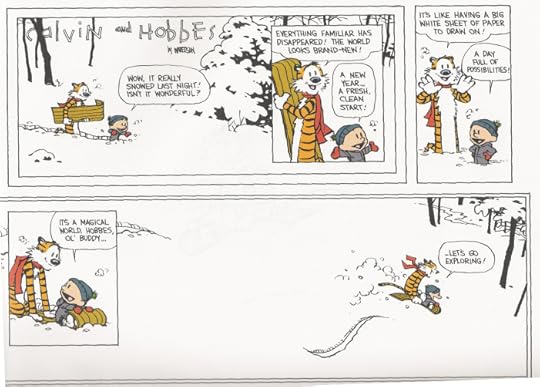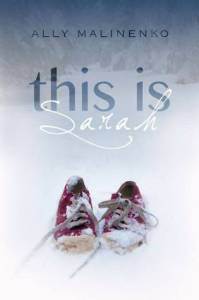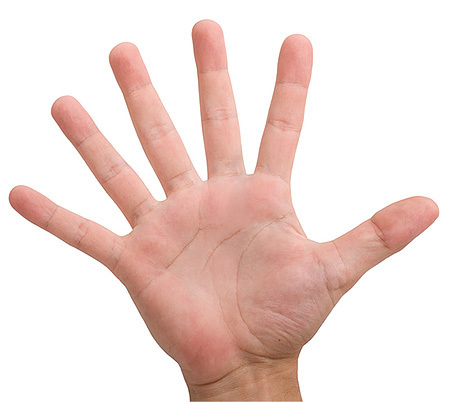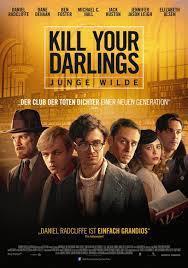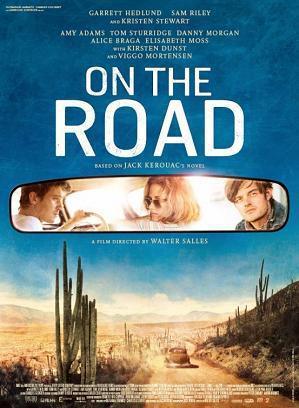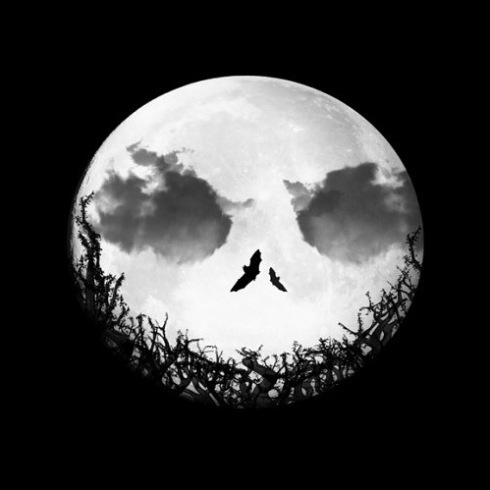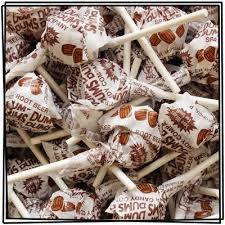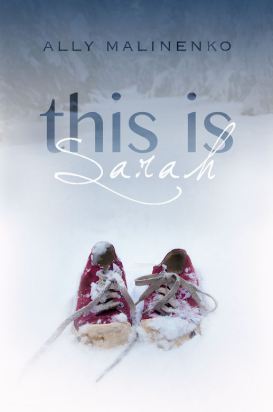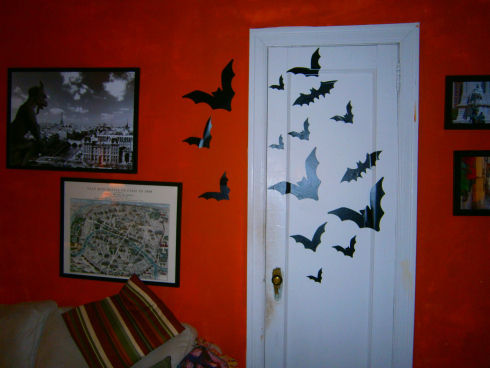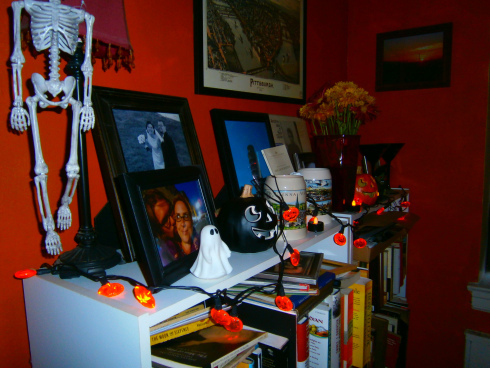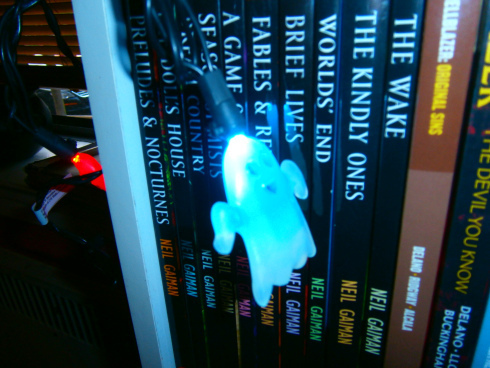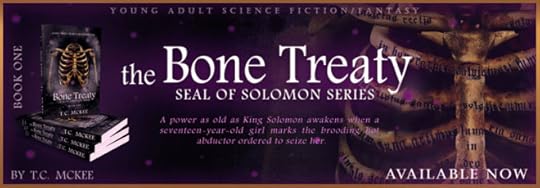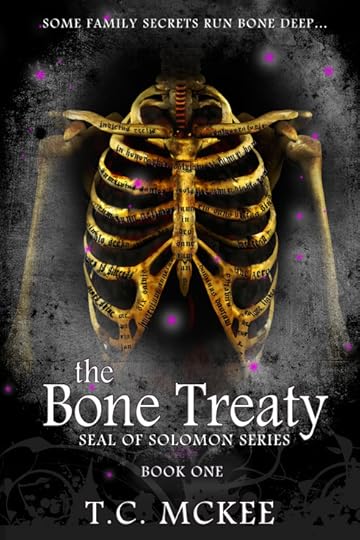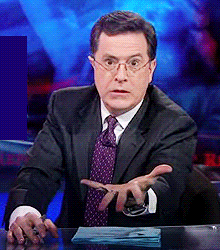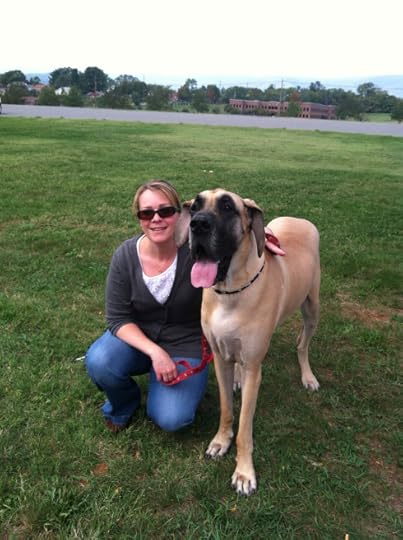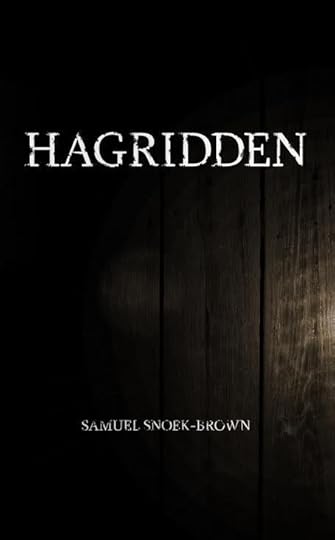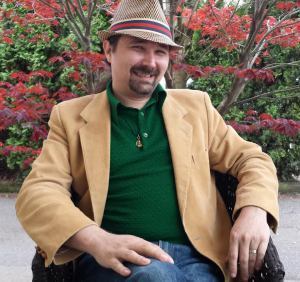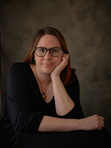Ally Malinenko's Blog, page 11
December 31, 2014
Happy New Year
December 23, 2014
Author interview: Ally Malinenko
Many thanks for the chat Lois!
 Originally posted on Faithfullyours:
Originally posted on Faithfullyours:
Having just released her fifth book and her second novel This is Sarah, Ally Malinenko caught up with faithfullwords to talk about her life as a writer and what it was like to produce such an emotional story.
When Colin Leventhal leaned out his bedroom window on the night of May 12th and said goodbye to his girlfriend, he never expected it would be forever.
“The first draft of This is Sarah was a ghost story. An honest to goodness ghost story” Jokes Ally Malinenko, discussing how the premise for This is Sarah came about. “Not a paranormal romance, but a story about a boy who was haunted by the ghost of his very real, very dangerous dead girlfriend.”
This is Sarah developed into a tender and sometimes painful story of loss and unsaid goodbyes. After reaching the voice-mail of missing girlfriend Sarah a year since her disappearance…
View original 597 more words

December 16, 2014
Top Five…er, Six
I never do Top Five Six lists. This is due to a healthy dose of inherent laziness, poor tracking and a self-conscious feeling that I have no business judging someone’s work.
But hey, let’s do this anyway.
According to the book log I keep in my journal I read 47 books this year. This feels low to me. I feel like I should have read way more books than this. I know I had some huge ones in there (looking at you Collected Sherlock and The Beatles) but I also read a lot of poetry so I have no real excuse. Must have been all the comics books cutting into my reading time.
Anyway I’m including the entire list at the end of the post for the whole zero of you that might be interested.
The 47 broke down as follows: 9 Non-fiction, 26 Fiction, 11 Poetry and 1 play.
So Top Five in order of Absolutely Nothing:
1.Tune In: The Beatles

I wrote a long review of this on goodreads but let’s just say that much like The Beatles, Mark Lewisohn’s book is more than the sum of its parts. Great writing, astounding research (and this is coming from a librarian) and a love of the subject that jumps off the page and sings you a song. It’s going to be a long wait until the second volume comes out in 2020 (the third is due in 2028).
2. Life After Life

What if we had a chance to do it again and again, until we finally did get it right? Wouldn’t that be wonderful? The only word I can think to describe this book is sublime. Utterly sublime. Fans of Cloud Atlas will feel a kinship with Ms. Atkinson’s Ursula Todd.
3. In the Kingdom of Ice

In full disclosure I’m a polar exploration addict so I am probably just a wee bit biased. That said, the New York Times agrees with me. What isn’t there to love about a story of boat frozen for two years, then crushed and sunk, leaving all her men to brave a long harsh thousand mile walk out of the arctic to Siberia?
4. Confederacy of Dunces
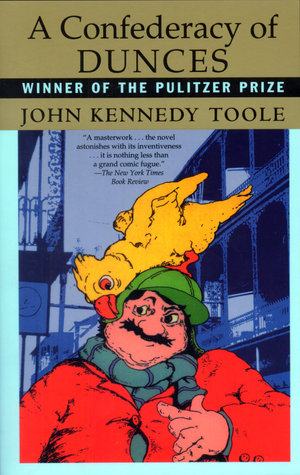
What? I never said they needed to be written this year. So JKT’s book has eluded me for a long time only because, while I knew I would love it, I just hadn’t bothered to actually read it. In fact I was so sure I would love it that in mixed company I nodded along with everyone’s assessment of how good it is. Then I read it and proved myself right. Unfortunately no one talks about how sad it is, too. And sadness should never be underestimated.
5. The Conformist

One man’s desperate struggle to contort himself into societies’ idea of normalcy. Moravia casts a bright light into the darkest corners of not only the human mind and our obsessions but also into how those obsessions mold our political life.
6. (because whatever it’s my list) Cosmos
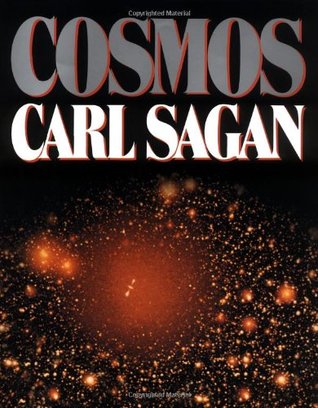
Easily one of the best books of my LIFE let alone this year, Carl’s beautiful journey through history, mankind and the ever-reaching ends of space is a classic for a reason. “Every one of us is, in the cosmic perspective, precious. If a human disagrees with you, let him live. In a hundred billion galaxies, you will not find another.” – Carl Sagan
So real quick before I include the WHOLE list, the other really cool thing about this year is that I read a lot of work by people that I actually know – fellow small press/self-pubbed/writers and poets who I can actual promise exist in this world.
And because small presses and their authors don’t get enough love here they are:
The River Underneath the City – Scott Silsbe
Unacknowledged Legislations – Steve Henn
Good Hipster Man – Eric Cohen
Bullshit Rodeo – Misti Rainwater-Lites
The Lower Forty-Eight – Jason Baldinger
– John Grochalski
Crossroad of Stars and White Lighting – Larry Raymond Duncan
Yield to the Willow – Don Wentworth
Guernica Revisited – Richard Vargas
The Real Moment – Kevin Lee
You should really check these folks out. They’re good people and they’re crazy talented.
You know what else is weird – 6 of my favorite authors (or authors whose books I was really looking forward to) are not on the Top Six list – not Jumpta Lahiri, Wally Lamb, David Mitchell, Patrick Rothfuss, Herman Koch or Joshua Ferris.
Weird.
And finally, as we wind down what was a spectacularly crappy 2014 (minus the publication of This Is Sarah by wonderful people at Bookfish who I love and adore) I want to wish you all a Merry Whatever and a Happy Something and be sure to tip one back for me this holiday season.
Bring on 2015, bitches.
Peace, Love and Starbursts,
Ally
**************************************************************************
HERE’S ENTIRE LIST!!!
King Henry IV – Shakespeare
The Shining – Stephen, King
The River Underneath The City – Scott Silsbe
Brutality of Fact: Interviews with Francis Bacon – David Sylvester
The Archived – Victoria Schwab
Unacknowledged Legislations – Steven Henn
It’s Kind of a Funny Story – Ned Vizzini
Susan Sontag: Complete Rolling Stone Interview – Jonathan Colt
Good Hipster Man – Eric Cohen
Bullshit Rodeo – Misti Rainwater-Lites
A Confederacy of Dunces – John Kennedy Toole
We are Water – Wally Lamb
Complete Sherlock Holmes – Sir Arthur Conan Doyle
Tune In: The Beatles – Mark Lewisohn
Dreams of Gods and Monsters – Laini Taylor
Thirteen Reasons Why – Jay Asher
To Rise Again at a Decent Hour – Joshua Ferris
After the Moment – Garrett Freyman Weir
Doctor Sleep – Stephen King
The Lower Forty-Eight – Jason Baldinger
The Snow Queen – Michael Cunningham
Summer House with Swimming Pool – Herman Koch
Starting with the Last Name Grochalski – John Grochalski
Switching/Yard – Jan Beatty
Crossroads of Stars and White Lighting – Larry Raymond Duncan
Cosmos – Carl Sagan
Mr. Penumbra’s 24 hour Book Store – Robin Sloan
The Conformist – Alberto Moravia
Suffering, Suicide and Immortality – Arthur Schopenhauer
The Magician’s Land – Lev Grossman
The Lowlands – Jumpta Lahiri
Yield to the Willow – Don Wentworth
J.D. Salinger: The Escape Artist – Thomas Beller
Guernica Revisited – Richard Vargas
The Real Moment – Kevin Lee
A Brief History of Time – Stephen Hawking
Bone Clocks – David Mitchell
In the Kingdom of Ice – Hampton Sides
The Right Madness on Skye – Richard Hugo
Some Kind of a Fairytale – Graham Joyce
The Art of Asking – Amanda Palmer
There Stories – JD Salinger
Unmentionables: Poems – Beth Ann Fennelly
Something Wicked This Way Comes – Ray Bradbury
The Slow Regard of Silent Things – Patrick Rothfuss
Under the Skin – Michael Faber

November 22, 2014
Stories Are A Lie And A Truth All Rolled Up Into One
When I was in college, a friend told me that she thought I had Borderline Personality Disorder.
I didn’t know what that meant so I looked it up.
Borderline personality disorder (BPD) is a serious mental illness marked by unstable moods, behavior, and relationships.
Here’s some of the signs:
Extreme reactions—including panic, depression, rage, or frantic actions—to abandonment, whether real or perceived
A pattern of intense and stormy relationships with family, friends, and loved ones, often veering from extreme closeness and love (idealization) to extreme dislike or anger (devaluation)
Distorted and unstable self-image or sense of self, which can result in sudden changes in feelings, opinions, values, or plans and goals for the future (such as school or career choices)
Intense and highly changeable moods, with each episode lasting from a few hours to a few day
Chronic feelings of emptiness and/or boredom
Needless to say, she was wrong. She didn’t mean borderline like that. She meant borderline like something on the edge. Open to interpretation.
She was trying to say that I have a malleable personality.
Flexible? Yes.
Ranging in extremes? Yes.
Subject to flights of fancy? Hell yes.
I saw my oldest sister the other day and during our conversation she told me a story about one of our Ya-Ya weekends together. Our Ya-Ya weekends were when my two sisters and I would get together for one weekend a year and hang out. We all live far away, my family had been through some hard shit at the time, so my sisters and I decided that we would make a point of seeing each other, just the three of us, once a year. I have fond memories of these weekends.
But the story she told me was one I didn’t remember, which isn’t a shock – I have a terrible memory. It’s the reason I have kept journals since I was a teenager.
So at one of these weekends I apparently burst into tears when my sister was faux-complaining about the “press 1 for English” thing on the phones. Again, I don’t remember this. I can only assume it happened because it SOUNDS like me.
I think it’s empathy to a fault.
Faulty empathy. Squishy-mushy personalities. I can quite easily put myself in someone else’s shoes. The problem is, I never seem to give them their shoes back. I just sort of keep them, carry them around with me emotionally.
I’m like an emotional junk lady.
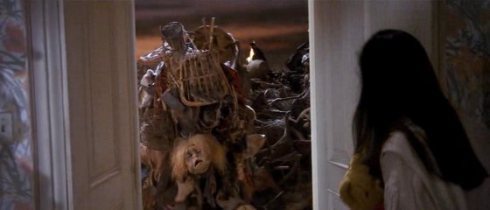
Remember her?
I just keep collecting other people’s stories and twisting them together with my own.
When I was younger I had a problem with lying. I like to think it was an unhealthy expression of my innate desire to tell stories but the fact is I hurt people so I don’t deserve to get off the hook that easily.
But it’s like I would pick up pain or happiness or fear or anger and stick it on my back and it would become a part of me. Even if I didn’t own the cause of those feelings to begin with.
I was thinking about this because the number one question I have gotten from people who have read my book This Is Sarah is that they want to know if this is based on a true story.
And I tell them again and again, it’s not. I am not Sarah, or Colin, or Claire.
No one I knew had been kidnapped.
So, they wanted to know, how did I know so much about what it’s like to go through something like that?
Because everyone I knew had lost someone.
Had grieved. Including me. And grief, regardless of how it arrives, is universal.
I thought that was a pretty good answer. And yet more often than not they were disappointed.
As if my “making it up” was somehow untruthful.
A lie.
I had deceived them.
They wanted the story itself to be real. It didn’t matter that the emotions were. It didn’t matter that the pain and the anger and the fear were. It didn’t matter that some people, like Colin, shut down in the face of death. That other people, like Claire, refused to. None of that mattered as much as wanting it to be true.
Strange how people are, isn’t it?
John Green wrote a book called The Fault In Our Stars. You’ve probably heard of it. It’s pretty famous. He dedicated the book to Esther Earl. Esther was a young girl that died of cancer, and the author of “This Star Won’t Go Out.“
Mr. Green met Ms. Earl at a Harry Potter convention. He was moved by her story and he credits her with being part of the inspiration for his character Hazel. The book was published in 2012, after her death.
In a goodreads interview John said the following:
I could never have written this if I hadn’t known Esther. She introduced me to a lot of the ideas in the book, especially hope in a world that is indifferent to individuals, and empathy. She redefined the process of dying young for me.
Walking out of the hospital in 2000, I knew I wanted to write a story about sick kids, but I was so angry, so furious with the world that these terrible things could happen, and they weren’t even rare or uncommon, and I think in the end for the first ten years or so I never could write it because I was just too angry, and I wasn’t able to capture the complexity of the world. I wanted the book to be funny. I wanted the book to be unsentimental. After meeting Esther, I felt very differently about whether a short life could be a rich life.
But a lot of people have interpreted that to mean that John’s main character IS Esther.
As if a story about death – the most universal thing of all – the only thing that equalizes every living creature – wasn’t as powerful if there wasn’t one specific life behind it.
Again, people are strange.
Gayle Forman, also pretty famous, wrote a book called If I Stay. It is the story of Mia, a girl who narrates her story from a hospital bed after losing her entire family in a car crash. Except Mia is in a coma.
Gayle wrote a piece for the New York Times about how that car full of people were her friends. Except for Gayle, no one lived.
Mia, the cellist, was fiction, but the accident, and Mia’s family — her punk-rocker turned 1950s throwback of a father, her strong-willed mother and her adorable little brother — were resurrected from the ashes of my loss. A loss that no longer had the power to sucker punch but instead had become part of me, like a scar, or maybe a smile line.
I fell off a waterfall one year in high school. I also fell in love with a boy who fell in love with another boy. That’s a story I’m working on telling but in the end, it will just be that: A story.
The power in stories lie in the fact that they are universal. That the people that populate them are us.
You. Me. Them. Us.
That they are talking about something that we all know.
Love. Sadness. Hearbreak. Fear. Joy. Misery. Loneliness.
Stories are woven. They’re partially the writer, partially the people they know, part strangers, part imagination, part reader.
They’re a lie and a truth all rolled up into one.
And if they’re good, then they make us remember what it means to be us.


November 8, 2014
The Beat Goes On….Unless You’re In Hollywood
I got into the Beats in high school, probably like many people, by reading Kerouac (not On the Road but The Subterraneans). One book lead to another as they inevitably do, and I worked my way through all of the major players – minus Burroughs who I could never get into.
But the same question kept popping up over and over again. What happened to all the women?
Edie, Joan, Carolyn, Elise, Diane, and Joyce, to name a few.
They were there for the majority of the movement and yet, they go utterly unrecognized. Yes, it was the 50’s, a time when women belonged to their parents first and their husband second. When Kerouac, Ginsberg and Cassidy broke the rules, they were punished. They were cast off by their families, disregarded by society, deemed dangerous and troublesome. There was much shaking of the head and tut-tuting over what was happening to these young men.
When women acted out – when women experimented with drugs or sex or art – they were institutionalized, fed electric shock therapy, lobotomized. They were locked indoors and forced to conform.
And since then many of the women of the Beat Movement have been re-fashioned as Muses, there to inspire the brilliant men they found themselves around. Their role was to be passive, attractive, to keep their mouth shut and their eyes open and maybe, just maybe they might learn something. And this role was not specific to the Beats. John Lennon and Paul McCartney’s first girlfriend’s, Cynthia and Dot respectively, were allowed to sit in when John and Paul talked music but they were advised “to keep quiet” though they of course had opinions on the music scene in Liverpool. How could they not? John and Paul wanted them in their miniskirts and blonde as Bardot as possible.
So that’s the way it was.
But that’s not the way it is anymore.
So here we are in 2014 and yet it feels like little has changed when it comes to The Beats. More and more films are coming out and yet the portrayal is exactly the same. You have two choices: Whore or (Long Suffering) Madonna.
Let’s talk about the last two big ones – Kill Your Darlings and One the Road.
So Kill Your Darlings is predominately about the Lucian Carr/ David Kammerer murder. Basically Kammerer, infatuated with Carr, dogged him endlessly until Carr stabbed him, tied him up, weighed the body and dropped it into the Hudson River. Using the honor slaying defense, Carr did two years before he was released.
Kill Your Darlings includes a few scenes with Edie Parker, Kerouac’s girlfriend at the time.

Edie Parker
Edie Parker was a good friend of Joan Vollmer – who later married Burroughs. While Edie and Joan attended Barnard, they shared a place that “the boys” all went to hang out at and listen to jazz and get high and talk about art. One more time in case you missed it. Who’s place was it that they all hung out? Yes. Her place.
At the time depicted in the film, Edie and Jack were dating but they later married, in a bizzare effort to free up some of Edie’s money so she could bail Jack out after he was arrested as an accomplice to Kammerer’s murder.
In the film she’s played by Elizabeth Olsen.
The makers of Kill Your Darlings liberated poor Edie from that nasty trap of a) having her own place and b) actually being a part of the movement by giving her two scenes. In the first she bitches at Kerouac that she spent all day making stew which he tells her smell like crap before grabbing his coat and leaving with his buddies.
All day making stew? That’s the most they could give her? All day. Making stew.
The second was of Kerouac’s triumphant return to Edie, where she was found at the table with her grandmother eating sad cake (literally) and chastising Jack for being late/unhelpful/free-wheeling/having a life/which she clearly doesn’t.
Edie Parker is nothing more that a typical 50’s housewife: rejected, angry, unappreciated and utterly defined by her male partner.
The real Edie Parker was a part of the movment, a college educated independent woman. Not that Hollywood would know a damn thing about that.
Thanks god they didn’t include Joan. They would have crushed her.
Next up is On the Road:
Kristen Stewart plays Luanne Henderson.
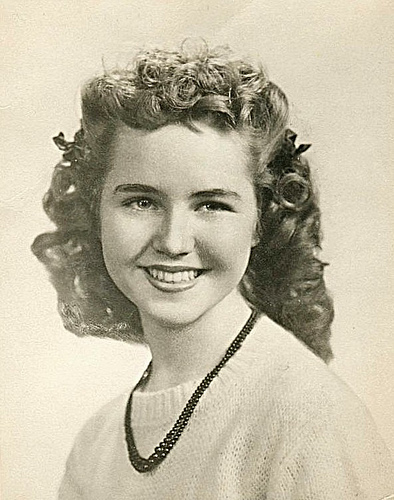
Over at Beatdom, they’ve got some quotes about Luanne by Al Hinkle, someone who actually knew her:
Luanne! I fell in love with her the first time I met her. She was a beautiful, blonde 16 year old, outgoing and confident. She wasn’t forward with men, but she wasn’t shy, either. Luanne wasn’t a “quirky” girl; she was very down to earth and got along with everyone.
Neal had such complicated relationships. I remember us pulling in to the drive-in diner and being introduced to Neal’s beautiful little wife when she came out to take our order, then going to Pederson’s pool hall and meeting Jeanie, Neal’s girlfriend. It kinda shocked me.
I know Luanne was in love with Neal all her life. I could see that, even at 16, she felt that she was a married woman, not a child. She was the one that found the way to make all of Neal’s crazy plans work – she worked for money (or stole it), found rides, made sure she took care of her man. Even after he divorced her to marry Carolyn, Luanne made herself available to Neal whenever he asked, and I think she always felt that she was still his wife, even though they both remarried. When BART (Bay Area Rapid Transit) first opened in the 70’s, I would take a ride from San Francisco to the last stop on the line – Daly City, and I would walk up this enormous hill to Luanne’s house and visit with her every week. I always had good feelings about her – she had earned her place in our gang and was fun to be with. I know she had gotten into heavy drug use later, in her 40’s, but she went to rehab in Colorado and came back to California clean and sober.
So Hollywood took this interesting engaging character and did this instead:
Warning: Topless People doing sexy stuff.
According to the Guardian, “Kerouac made little effort to give his female friends depth and dignity on the page; the film attempts to remedy that oversight.”
Remedy? Really? By making Luann nothing more than the whore to Edie’s Madonna?
Is that the most you can do Hollywood? She was confident and down to earth. Apparently that translates to “Quick, get her nekkid in the car to pleasure those them smart literary type boys!”
“I love Marylou,” Kirsten says, “In the book she’s fun, she’s sexy, she’s vivid, she’s progressive for her time. She jumps off the page and smacks you in the face….. LuAnne never made herself a commodity. And she really is this amazing link between the two boys; it’s a grand statement to make, but that adventure might not have happened without her.”
Luanne Henderson traveled around with Jack Kerouac and Neil Cassidy ferchrissake and the most interesting thing they have her do in this film is a topless handjob scene.
Thanks, Hollywood. Keep up the good work of crapping all over the Beat Women.
It’s not bad enough they were stifled in their own time. In ours, when we have the change to liberate them, we instead shove them back into the same tired old box. Because let’s be honest, nothing has changed. These women are still be portrayed as secondary to the boy’s club, only now Holywood gave them the only weapon it’s ever known how to wield: Their sexuality.
Which is, without a doubt, the least interesting thing about any of them.
Grow up, Hollywood and give us our movie about what it was really like for creative women in the fifties who tired desperately, albeit fruitlessly, to break out of the patriarchal world they were tied to.
We deserve that much.


October 31, 2014
THIS IS ALLY-WEEN
Happy Halloween kids!
Easily my favorite holiday of the year. You can keep your overcooked dried turkeys and your relentless jingle bells. All true mischief makers know that Halloween is the best holiday of the year!
I heard from a pretty reliable source there was promise of Dum-Dums in my future.
ROOTBEER DUM DUMS!!!
Before we close out this month, I have a couple quick thank yous to share:
Revising/editing/publishing This Is Sarah and revising Palimpsest has really taken up a huge chunk of my writing time in these last 10 months. Poetry has certainly (until recently) taken the backseat so I’m always especially grateful when awesome mags pick up something. So many thanks to Underground Books for taking these poems from the How To Be An American Series and to Commonline Journal for accepting Marriage.
The Blue Hour – one of my favorite magazines – has a new anthology out. This is their third one and if it’s anything like the other two (and I know it will be) it will certainly be a fascinating collection. The best thing about Anthologies is that you get to discover new poets in them! Check it out if you have a chance. Blue Hour doesn’t sell on Amazon so be a gem and get it directly from the site. Then you’re supporting small presses, poetry, and non-behemoths. A win for us all!
In book news, I’ve got a few copies of This Is Sarah involved in a massive giveaway hosted by Krista and Kristen.
So if you want to win some books, there are approximately 9 bajillion available. Enter here!
And in other Sarah news, thanks to Rosie at Eat Read Glam for the review and to Missy at MidSummer for the same.
Blog reviews are gold to a small press publisher. And FINALLY I had a blast bs-ing with Tasha Cotter, my press buddy. Her new book, Red Carpet Day Job is forthcoming from BookFish Books.
And that’s about it for my month.
Anyway kids, have a blast tonight.
Start Some Trouble.
Fall in Love.
Do the Time Warp Again.
Play piano with a pretty little dead girl.


October 28, 2014
A few thoughts (and a few too many words) on publishing
WARNING! WARNING! WARNING!
THE POST IS NOT MEANT TO DISRESPECT ANY FORM OF PUBLISHING WHATSOEVER.
Just so there isn’t any confusion about what I’m about to say.
So I was invited to participate in the Indie Fall Fest by Krista and Kristen. My very cool press BookFish Books hooked me up with them and I was excited to have a chance to share my latest novel, This Is Sarah, with the world. Both Krista and Kristen have been unbelievable – juggling a million different writers and blog posts, handling interviews and giveaways. Honestly there are 141 books being given away. This thing is huge.
So part of the procedure involved me filling out a questionaire and the first question on there said:
Which was the first Indie book that you can recall reading?
And I stopped right there because I wasn’t sure how to answer that question. And the reason was because the word “Indie” means different things to different people.
To some indie means what it has meant since bands started their own record labels in their garage in 1983. It means “Independent.”
But these days, in publishing indie can mean small press OR it can mean self-published.
Now, at this point I emailed for clarification. Because I wanted to double check and see. Did they think that I self-published This Is Sarah? Was that why I was invited? NOT THAT THERE IS ANYTHING WRONG WITH SELF PUBLISHING but my press and my editors at BookFish worked really hard on this and the last thing I wanted was for people to think it was all ME. Cause honestly, this cover?
Not me. So very much not me. I couldn’t even begin to figure out how to make something like that nor would I even know how to go about finding someone like the talented Anita who made the cover.
Mine would have a stick figure. And not even a good one.
And the scene in the book where Colin gets into that fist fight with Michael. This one:
I hang up just as Michael grabs me and pulls me out of the closet. The phone falls out of my hand, clattering to the floor. I don’t have time to balance myself, let alone get him off me, before he throws me against the wall of lockers.
Just for the record, you see this sort of shit in movies all the time―people getting thrown into walls and doors, and they just bounce right back like the whole place is padded or something. Well, the lockers sure as shit aren’t padded, and as one of the locks grinds into my lower spine, I can promise you, it hurts way more than you imagine. White hot pain shoots up to my shoulders.
“What the fuck did you say to her?” Michael growls.
For a moment, everything goes blank, and I curl my hand into a fist. Michael lets me go, and I turn to walk away. But he’s not done, and now, he grabs me again by the shirt and throws me back against the locker.
More pain and then something just snaps in my head. I picture them together. I see Michael kissing Sarah, taking off her clothes. I see him whispering in her ear. In my head, everything goes white, and I swing.
My fist connects with his jaw, and his head snaps back. I swing again, even though my hand is on fire with pain, and I worry that I broke at least a few bones.
I might have written those words, but the scene itself was suggested by Mary and both Jen and Erin cleaned it up so it didn’t sound like crap.
This is what I’m getting at with Small Presses. They take care of you. The pick you up, dust you off, make sure you don’t sound dumb and push you out the door like a kid on her way to 2nd grade. They walk you to the bus stop, wave as you go and when you get home they’re right there waiting with cookies to hear all about your day.
And they bust their butt promoting your stuff online.
Back in 2013, I wrote a post for Pen and Muse about how my first novel was rejected by every major press in America. It was both utterly liberating and utterly humiliating to talk about. No one wants to talk about failure right?
Except maybe it isn’t failure.
I understand that my first book – a story about a girl who discovered she was the last living descendant of Shakespeare and gets swept away to a magical version of New York – might not be a marketing department’s cup of tea. They all let me down real easy – “thanks kid, you can write but this just isn’t for us.” kind of thing. So instead it went to a small press.
And when I wrote This Is Sarah – it was just a novella – not the sort of thing a major press would be interested in especially from a nobody like me. But there again was another small press ready to talk.
Marketing a book these days is not easy. It’s an incredible amount of work – work done by both the press and by the artist. There are blog posts and facebook posts and tumblr and tweets that need to be going all day. And they can’t ALL be about your writing because then you’re one of those really annoying people on twitter that only talk about their work or their book, this unending noise of “BUY ME BUY ME BUY ME!”
Instead it has to be this suave version of “hey i’m really funny and interesting and that’s just me being me and oh, what’s that? Oh yeah, I wrote a book. No biggie. Here it is. Shrug.”
Not so easy, especially for us (*ahem*) less than outgoing types. I was so thankful for all the extra promotion that Bookfish got me – setting up the cover release tour and book reviews and tweeting and facebooking their little hearts out when this book came out. I couldn’t have done all of that by myself. Which means those self-published people who have no press support got it even harder.
I was talking to a blogger named Rosie who read a copy of Sarah and we got talking about presses and different kinds of publishing choices and she said the following which I thought was incredibly insightful:
It’s authors like you that make me want to urge people to look past the books being pushed by big publishers occasionally and not be afraid to books published by smaller publishing companies or self-published authors…..
Before I had a Kindle I’d never even thought that their might be small pressers or authors funding their own books, which was very naive of me but on the other hand I’d only had access to what bookshops are pushing which is always big publishers.
When I heard that people self-published on Amazon, it was like discovering a whole new world and I started looking for smaller authors and I’ve discovered some amazing books. There does seem to be a bit of stigma around self-published books or small publishers, like they aren’t good enough because Harper or Penguin didn’t want them but I’ve read some bad books published by big publishers and some amazing books that are self-published or small press. The size of a publisher isn’t a reflection on quality.
I think what I like best is that authors like you are writing because you love writing, not because your publisher wants to make more money out of you. I’m fed up of reading trilogies that don’t need to be trilogies. “
This was very encouraging. This idea – that online book sellers give you access to more than what is in the store – is especially telling. I know that Amazon is a behemoth and there is the Hachette dispute but the fact is, that is where many many people get their books from. My press told me that 90% of their sales come from Amazon. So that begs the question how many readers am I missing by not being in brick and mortar bookstores?
I’m not really sure. I just know that ebooks have opened up a lot of doors for writers to get their work in the hands of readers – with or without a press. Plus the work that Katie and Kristen are doing to get people familiar with small press books makes me think we have a stronger voice after all.
Maybe we just need to all shout at once.
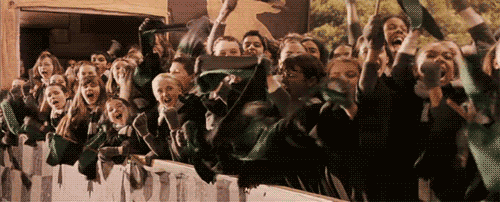
Anyway…many thanks to everyone who read, reviewed, promoted, supported or gave me a shout out when I was writing or promoting This Is Sarah.
I do write because I love it. It’s the best thing that I do. I just want to keep doing it.
Peace Love and Starbursts,
Ally


October 1, 2014
SHOCKTOBER
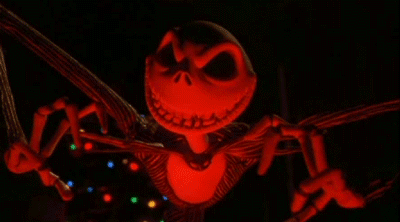
Okay first off, there’s loads of things going on that could be discussed or maybe should be discussed but we’ve got no time for that now because MORE IMPORTANT THAN ANYTHING ELSE IS THIS:
Today is October 1st – the official start of Halloween-times.
And the ol’ Bunker is decked out.
When you live in a pumpkin colored room you just can’t help yourself. Plus I went to Target and they had all these things on sale and long story short…. I’m broke now.
Now because there is only one true way to start off SHOCKTOBER, I give you the Grand Wizard (please no klan jokes)
Let the mischief making begin, kiddies.
Peace, love and Candy Corn,
Ally


August 23, 2014
Interview with T.C. McKee – The Bone Treaty
Welcome kiddos!
Today I would like to introduce you to the very charming, very funny, wickedly talented T.C. McKee, author of The Bone Treaty recently released from BookFish Books.
Wanna see the cover? Of course you do!
Amazing isn’t it?
You know you’re all:
So T.C. agreed to come over and answer silly questions for me. So take some time to get to know her and her book and then add the Bone Treaty to your to-read pile! You won’t be disappointed!
Where do you get your ideas from? The tears of small children, right?
Definitely from the tears of small children. I like to add them to pomegranate martinis. Maybe it’s mixing the salt with the alcohol that just brings out my creative nature. No, seriously. I have no idea where my ideas truly come from…possibly an overactive imagination, watching people, listening to conversations, looking at the sky, daydreaming. Somehow, when I least expect it, a world, a story, a character just pops inside my head, demanding to be written. So yeah, I just do what the voices tell me to do.
Why did you write The Bone Treaty?
I would call it a personal challenge. I dabbled in writing when I was a teenager. My father used to steal my notebooks (no computers back in the day). He’d read them to try and figure me out, so needless to say he thought I was a little crazy for years. Never, ever try to figure your kid out through science fiction. Like ever! Anyway, life happened, kids happened, a real job happened, and it seemed I never had the time to write until a few years ago. One night, while the house was quiet I opened my laptop and just started writing. The Bone Treaty took on several forms before it truly resembled a story, but I just kept at it and here I am.
Clearly this is the first in a series – so did you plot everything in advance for the whole thing or are you making this all up as you go along and hoping for the best?
A little of both. I’m not a big outliner. I wish I were, but I never seem to stay on track. I like to go where the story takes me, and writing inside the lines just never works out for me. I admire authors who can lay out an entire manuscript in two pages, write it in about two months, and then go into revisions. It doesn’t work that way for me. I like things to marinate a little.
First book you fell in love with as a kid?
Apart from the norm as a small child, my first YA book was Say Goodnight Gracie, by Julie Reece Deaver. It was the first time I felt emotionally attached to a book.
If there was one thing people should know about your book before reading it what would that be?
The plot has so many layers that it was impossible to lay it all out in one book.
In this cynical day and age what do you think fantasy books do for readers? What do they do for you?
I think they fuel imagination and we’re missing a lot of that in our youth especially. I think we also need places to go, worlds to get lost in, and characters to relate to. For me, I want to see an alternate universe, experience something amazing at the end of the day. We all need a break from reality from time to time.
Addie’s ability to read emotions using “color-vision” sounds amazing. If you had that talent, how would you use it?
I would definitely know who to avoid in public. Just think what the world would be like if we could all just avoid negative people, or meanies on the sidewalk. We could easily look at people and say, “Don’t talk to me. You’re a bad person and I know you’re a bad person because you are all red, so take your evil intentions and move over there, Mister Stranger Danger!” It would be an awesome world.
Who would win in an arm-wrestling contest: C.S. Lewis or J.R.R. Tolkein?
Damn, that’s a tough one. I’m gonna say C.S. Lewis.
Follow up question – what’s with all the initials? C.S? J.R.R.? J.K? and now you T.C.?
Two reasons. First, when I started writing again I was scared of people knowing who I really was. I mean, what if all those people from high school buy my book and hate it. I have to see them in the grocery store. But then later I realized I didn’t really care about that. I was writing for the love of writing. I want people to love my book, and all the books I’m working on to come, but if they don’t I still love writing, so it’s okay now. Second, I’ve always kind of secretly hated my first name. No offense to any Tammy’s that might be reading the blog. I just never felt like it fit me very well. I cringe when I hear it. My husband calls me Boo, Babe, or Tam. I can live with those. I wonder if I should have put Boo Mckee on the front of my book. Ha!
Nice, right! I told you she was funny.
You can stalk er….get to know TC on her website or on twitter! And remember The Bone Treaty is out now!


August 19, 2014
Interview with Samuel Snoek-Brown on the release day of Hagridden
So today’s the kick off to the blog tour for Samuel Snoek-Brown’s debut novel, Hagridden and guess who gets to start it?
That’s right!
Me!
Sam and I met via Jersey Devil Press – a great magazine that I am proud to be a part of. I’m a big fan of his writing so when Columbus Press contacted me to help out with the tour for Sam’s book I jumped at the chance.
For those of you unfamiliar here’s some information:
As the Civil War winds violently down, fears of the South’s uncertain future fuse with its unraveling traditions. Against the backdrop of this post-apocalyptic landscape, so littered with corpses and mythology and desperation, two women, stranded and alone in the Louisiana bayou, fight to survive.
Described as both a historical and contemporary piece of literary fiction, Hagridden, is a hunting drama that unflinchingly approaches race, culture, apathy and humanity.
I got my hands on an ARC and this book is the real deal. Sam is also going on an in-person book tour down in Texas so if you’re in the area – be sure to check him out. Dates and times are available on his website here.
And the book is available for sale here!
It is clear from just the first opening pages of Hagridden, this book must have took an incredible amount of research. Can you talk a little bit about how you went about that research and why, as a Portlandian (well, technically Ex-Texan Portlandian) you chose to set your book in the bayou?
I did grow up in Texas, but I have a lot of family from Louisiana. My mother was born in Deridder; her parents are buried in Rosepine. My aunt and uncle and cousin lived out near Johnson Bayou and Cameron, in exactly the region where Hagridden is set, and that’s why I set it there — when I decided to write a Civil War novel that set aside the battlefields and the national-scale politics so I could focus on the intimate, the personal, the struggle for individual survival, those saltmarshes of southwest Louisiana made perfect sense as a setting.
It’s funny that you bring up the difference between my own place in writing the novel and the setting of the book itself. I hadn’t really thought of that before , but I did write this book all over: in Texas, in the United Arab Emirates, in Louisiana, and of course here in Oregon. (And my publisher is in Ohio! That’s a wide-ranging story!)
That distance did impact the research. When I was drafting it overseas, I didn’t have access to any print materials about the Civil War, let alone the minutia of Acadian homebuilding, 19th-century American clothing, books on bayou flora and fauna, Cajun folklore, etc. So I did most of my initial research online, and only really got to the book sources when we moved to Portland. But even then, our interest in and perspectives on the Civil War in the Pacific Northwest is different than it is in the South, and that’s reflected in our libraries’ print collections, which is why I finally took a research trip to Cameron Parish in Louisiana to hit their local collections, talk to the people, walk the land, visit the cemeteries, dodge the gators . . . .
Where did the story at the heart of Hagridden come from? I read in a previous interview that while working as an office cleaner you once found a compartment in a wall containing papers, money and lock-box for a handgun. That, to me, sounds like the beginning of a novel right there. Was Hagridden a similar experience?
Oh yeah! That old story! I was a maid, actually — or, I worked for a maid service — and the hidden compartment was in some guy’s home office, which made it even creepier. Later, I babysat for a home hairdresser whose client claimed to be a mercenary and once showed her his secret gunroom. Yeah, I should definitely write that book!
The kernel of the novel came when I was in grad school in Texas. I’d been tapped to introduce Louisiana writer Tim Gautreaux when he visited our campus, and the morning I was writing my speech, I was watching old samurai movies on tv, and in my mind, the civil wars of medieval Japan came together in my mind with our own Civil War and with the Southern fiction themes of cultural isolation and survival amid change. Once I saw that, the book felt necessary — I really wanted to read that novel! So (eventually) I wrote it.
You were the recipient of a 2013 Oregon Literary Fellowship. Can you tell us a little bit about the award and what it meant for your ability to write your novel?
The Fellowships are organized by Literary Arts, Oregon’s literary nonprofit that also hosts the Portland Arts & Lectures visiting writers series and the Oregon Book Awards. With the fellowships, the idea is to provide support for writers and publishers to develop or complete their artistic projects, but they go beyond just the finances: the year I received a fellowship, I also got season tickets to the Arts & Lectures series (I got to meet Salman Rushdie and Chris Ware!) and a week-long retreat at a writer’s cabin. It’s a big deal because a lot of the writers and publishers the fellowships have supported have gone on to become major names in Oregon and national literature. Stevan Allred, Kerry Cohen, and Cheryl Strayed are all former fellowship recipients, and the fellowships have helped develop important indie presses like Chiasmus, Forest Avenue Press, Future Tense Books, and Hawthorne Books.
With Hagridden, the core of the book was basically done when I submitted it to Literary Arts. It needed a lot of work, sure, but roughly speaking, the story was there. I just needed to revise it, and to revise it, I needed to be able to see the book as a finished whole. But at the time, I was still more focused on the words that made up the book, the trees but not the forest. My wife recognized this and encouraged me to apply for the fellowship, and even just the application process helped me see Hagridden as a complete book, ready for polish, which I spent the rest of that summer working on. Receiving the fellowship gave me both the drive and the confidence to actually start thinking about publication. And, of course, it also funded the research trip that helped me develop those important character details and get a stronger feel for the geography and the history of the region — the book wouldn’t have come out as rich as it did, and might not have caught the attention of my publisher, without that trip.
You don’t use dialogue tags. What’s that about? Is it a direct influence of Cormac McCarthy? How do you think it changes the storytelling?
That initially came about as an accident of the drafting process. I wrote the first draft of the novel for NaNoWriMo in 2009, but that year my wife and I were planning a trip to Vienna for Thanksgiving, which meant instead of the usual 30 days to knock out the rough draft, I only had two weeks. So at first, I was just skipping the quotation marks and even some of the speaker tags because they slowed me down. Anything to keep the writing going.
But as I got further into the draft, I realized I liked what it was doing to the narrative, and when I got into revision and tried adding the quotation marks into the dialogue, I felt like that punctuation was setting the dialogue apart, separating it from the story. Without the quotation marks, every sentence on the page is part of the story — it’s all narrative, even when people are speaking. That’s what I wanted for this story; it made it feel larger somehow. I don’t usually write dialogue this way, and I’m not planning to in my next novel, but here, it felt necessary.
And yeah, McCarthy is absolutely an influence on me. Him and Tom Franklin (who turned me on to McCarthy) — they weren’t the only voices I turned to while writing Hagridden, but they were the loudest voices in my head.
Your other book, Box Cutters is a collection of short stories. I’ve heard a lot of people talk about stories as if they were stepping stones to writing a novel. Did you feel this way? Was Hagridden your first attempt at a novel?
I think from a craft perspective, when writers are first starting out, it’s useful to think about it in this way. I like to point to Faulkner’s comment in a Q&A at the University of Oregon in 1962: when someone asked him about the difference between short stories and novels, he said, “All the trash must be eliminated in the short story, whereas one can get away with some of it in a novel.” I usually use that quote to complain about the sloppiness in some of Faulkner’s novels (I generally prefer his short fiction), but it is a good introduction to the idea that one should learn short stories before attempting a novel, because the short story teaches you compression and control. If a writer can learn that early, it will help her contain any narrative at any length.
But I don’t think any writer should treat stories as “stepping stones” to the novel, as though the novel is the ultimate form of fiction that we all should be striving toward. It’s true that novels sell better than novellas and stories and story collections, but that’s a problem for the marketers to figure out, and it certainly shouldn’t suggest that the novel is somehow the bigger, better version of the story. If anything, Faulkner was right in that the story is the better form for being so contained and precise.
So, frankly, I think once a writer has learned the craft of writing, her sense of story should be developed enough that length isn’t really an issue anymore. These days, I don’t often sit down and say, “I’m going to write flash fiction” or “I’m going to write a novella” or “I’m going to write a novel.” I did plenty of that early on, and if someone has solicited something from me and length is an issue, I can still do it, but mostly I just sit down at the desk and say, “What story do I want to tell?” And the story dictates the length.
And no, actually, Hagridden isn’t my first novel. I started a cheesy action novel when I was in seventh grade, though I never finished it. I wrote most of a bad Anne Rice-ish vampire novel in high school and college, but it, too, never really went anywhere. The first novel I finished was a comedy I wrote for my undergraduate thesis, and I wrote another novel as part of my doctoral dissertation. I still sometimes think of revisiting those, but really, they were mostly practice novels so I could figure out issues of time management and story structure. They were, to paraphrase Bill Cosby, the stories I had to tell so I could tell you this one.
What was it about teaching writing that interested you? What do you make of the adage that you can’t “teach” writing? Probably not much! What have your students taught you about your own writing?
I think that last part of that question wraps up everything else I have to say about the first two questions: I teach writing because my students become a writing community and they wind up teaching me as well. Mostly they do this by reminding me to keep returning to the beginner’s mind, as Natalie Goldberg says — they keep me fresh. One of the biggest complaints about writing workshops, especially at the graduate level, is that they can homogenize writing, and I think that’s a legitimate concern. It’s something to guard against. But when I teach writing, whether it’s upper level creative writing or introductory essay composition or summer workshops for teenaged writers, the students I get to work with haven’t gone through graduate workshops, they haven’t been trained to write in certain ways or according to certain traditions. That training is important, and I value the traditions I come out of as a writer, and I encounter a lot of student writing that would benefit from some of that training — but I also encounter total freedom, the utter absence of preconceptions. I sometimes read work from students that reminds me there are no rules except the rules that work, and they blow the cobwebs off all my old habits and wake up my own writing. That’s exhilarating, and it’s why I wanted to go into this field, as much to share what I’ve learned from great writing teachers as to learn what I never knew from great student writers.
Since you are a teacher and you teach writing, what is your view on work-shopping your own work? Do you have a writing group that you work with? If so, what was the biggest piece of advice they gave you when you were working on your novel? What piece of advice did you ignore?
I don’t actually have a formal workshop group in the way I did in college or in the way some of my writer friends do. Sometimes I think I’d like to have one — I have always benefited from it. But mostly, my experience in workshops taught me that in a din of disparate voices, I needed to find those few writers whose feedback I could trust to push me in the directions I needed to go, and then I had filter out the rest of the noise. In my writing life now, I feel like I have that in the few writer friends I work closely with. So when I send things out for feedback, it’s not in a formal, workshop-group sense, but one-on-one. I share things with some colleagues at the colleges where I work and from a handful of writer friends online.
These days, I’ve also learned how to read a rejection letter as feedback, and I sometimes get valuable advice out of that. When I received my Oregon Literary Fellowship, an agent in New York contacted me and asked to see the manuscript. She ultimately turned it down, but in doing so she gave me some valuable comments that helped me develop the characters quite a bit and refine the themes in the book.
I don’t think I really ignored any advice regarding Hagridden. When it got to my publisher, we discussed some questions about some of the vocabulary, and I was right about some of it but a lot of it I changed. Other than that, as far as I recall, no one ever really gave me feedback that challenged the nature or structure of the story, and the advice that required fairly substantive rewrites was all good advice and I took it. I feel fortunate to have gotten such good feedback on this novel!
I read in an interview that if you were marooned on a desert island the only piece of fiction you would have with you is Alan Moore’s The Watchman. Are you a big comic book fan? And if so, do you see links between the way mythology is used in comics vs literary fiction?
Ha! I’m sure that answer changes every time I see the question, but yeah, I definitely reread The Watchmen once a year. It’s practically a perfect book. And I am a comic book fan, absolutely. I’m not an ubergeek — I can’t compete with the real fans! — but I do have a pretty sizable collection of comic books and a growing bookcase of graphic novels. I’m fascinated by visual narrative, and I think the insights that comics authors bring to the narrative craft are profoundly useful even for us textual writers.
I don’t know exactly what the relationship here is — maybe it’s because our contemporary Western mythologies are best expressed in the form of superheroes, or maybe it’s because our very first religious/mythological texts took of the form of sequential visual narrative (comics!) on ancient scrolls and stone friezes — but I definitely think there’s a connection between mythology and comics, and I do think it’s often more effective (or at least more immediate) in comics than in literary fiction. When I wrote my dissertation novel, probably the strongest criticism I got about it was that the characters all felt a bit too large and the story a bit too outlandish, which of course was the point when I wrote it, but as I went back over the book after finishing my PhD, I realized it was such fair criticism that I couldn’t bring myself to leave that too-large outlandishness in the book. I would need to do a major rewrite, to effectively start again from scratch, which broke my heart because I loved the story so much. I wrestled with it for a long time and tried several versions of manuscript reboots, but it just wasn’t coming together. And then I realized it’s because the problem wasn’t in the story– it was the medium. If my novel could become a graphic novel, all that “outlandishness” would suddenly seem perfectly ordinary, and no one would question it. (That’s still something I’d like to work on, if I could find the right artist — or the right artist could find me — to collaborate on that afterlife novel!)
I think by treating the legend of the rougarou as a legend in Hagridden, and not as a literal thing, I’ve circumvented some of those problems and, I hope, made a new myth of the bayou. But it’s just grand enough, I think, that I do sometimes daydream of a graphic novel version of Hagridden. (Again, if the right artist came along, I’d love to see that happen!)
The publishing industry is a state of flux currently. Self-publishing or Indie publishing has become such a force that many of the big name presses are putting out digital only imprints. What is your opinion on this? Are they legitimizing good writers who need the support from a big name press or are they taking a bite out of the indie world on a venture that is low cost to them since it’s e-book publishing only? And what advice would you give to new writers trying to break into the publishing world?
I confess, I’m not involved enough in the industry as industry to speak with any authority on the issue of large corporate presses encroaching on the digital indie market. But advice to new writers? That I can tackle.
Here’s the most important thing I can say to writers trying to break into the market: Be patient, and keep working.
This is actually terrible advice, because the patience part is almost impossible to do. I know. I’m terribly impatient, especially about my writing.
But it’s important to keep in mind. When you send out a story and you have to sit around waiting, whether it’s the traditional months the lightning-fast digital hours — the wait can be excruciating. That’s why I always have several projects in various stages of work, so that when I send something out, I can focus on the next project and hope to forget about the current project floating around out there in the world. I don’t forget about it, of course, but in between all those mail checks and long sighs and stiff drinks, I have something else to work on. I’m writing, because that’s what we do: we write.
There’s this traditional path toward publication, this story we’ve all been told. I might be in the last generation for whom this would actually still apply, because this is a revolutionary time in literature and the traditional narrative is shifting, but the old story was this: You read a ton and went to readings and met other writers, and you wrote stories. And you sent those stories out, and you collected rejection slips until finally something took, and then little by little, you put together a list of publications. And you kept reading and studying and meeting people. Eventually you met the right people, or pulled together the right manuscript, and you put out a collection, maybe a chapbook. And that got your name out of the magazines and onto the bookshelves, and in the meantime you worked on a novel. Which is when you started all over — collecting rejections, putting together lists, honing your craft. Until finally you found the right person at the right time, and your first major book comes out, and suddenly you’re an author.
It’s an old-fashioned and heavily romanticized story, but it’s one I latched onto early on and, little by little, over years and years, I’ve actually managed to live that story. I’m tremendously fortunate, and that story involves so many generous people, and I feel so lucky. But to truth is, it wasn;t just about luck. It was about the work, and it took me YEARS. Like, decades.
These days the story is different, and with so many amazing small presses and the improvements in self-publishing, the path for some people (some people) is getting shorter. But for most of us, breaking into publishing takes an extraordinarily long time, and the only thing you can do to ensure that it might eventually happen is to keep working.
So my advice to new writers is to be patient, and in the meantime, keep writing, keep reading, keep putting in the time.
You’re just starting out your blog tour…what do you hope that readers will learn about Hagridden? What do you think we should know before we start your novel?
I suppose the one thing I keep hearing a lot are some preconceptions about the book. Some people hear that it’s historical fiction and they think it’s going to be a romance. Some people hear that it’s a Civil War novel and they think it’s going to be about battles and politics. Some people hear that it’s about an older woman and her daughter-in-law trying to make their way in the world, just the two of them, and they think it’s a heartwarming story that kids might like. Some people hear about the rougarou and think it’s going to be a horror novel.
There’s a love story in here. But there’s also some fairly graphic sex.
There are some soldiers fighting in here, but there aren’t large battles — most of the violence is brutal and intimate. And that brutal, intimate violence starts on page 3.
The woman and the girl do have a complicated but deeply devoted relationship — but they’re often ready to kill each other. Literally.
There’s at least one rougarou in this book, but it’s not supernatural — and it’s possibly more terrifying because of that.

